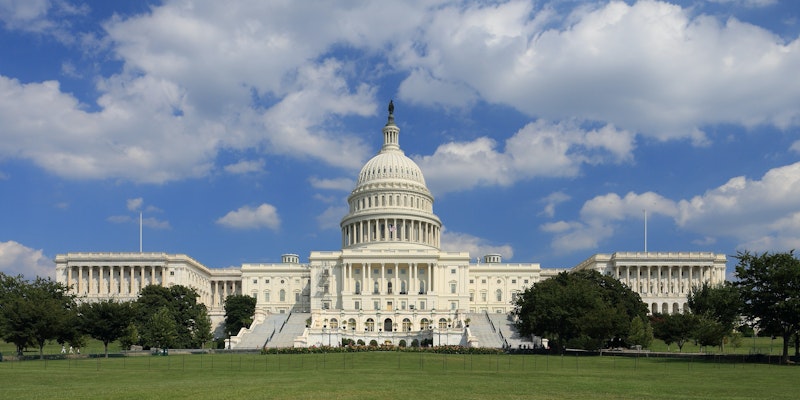Cryptocurrency insiders have quietly hijacked the legislative process in states around the country to write laws friendly to their industry, creating favorable environments that could help them circumvent a looming federal clampdown.
An investigation by the Tech Transparency Project (TTP) found that crypto entrepreneurs, investors and activists have packed obscure state advisory boards, using them to craft new laws that benefit the industry—and often themselves. Meanwhile, consumers and skeptical voices have largely been left out of the process, leaving crypto interests to effectively set policy in an emerging realm that few understand.
The events in the states contrast with the increasingly urgent warnings from federal regulators about virtual currencies’ potential to destabilize the global economy. They also come despite growing concern about the rapid growth of crypto-based crime and the vast energy consumption required for crypto mining operations.
The policies enacted by crypto advocates in the states may also complicate efforts at the federal level to bring some order to the freewheeling, largely unregulated sector. Many of the newly enacted state policies could remain in place, even if Congress and federal regulators take action.
A review of state meeting minutes, legislative files, working papers, social media posts and other public records shows that crypto advocates are competing to build the most industry-friendly regulations and attract crypto businesses to their states. In some cases, industry advocates have looked to foreign jurisdictions like Malta, Gibraltar and Switzerland as models to follow, for their tradition of lax financial oversight.
The state advisory groups—which exist from New Hampshire and New Jersey to Wyoming and California—are often tasked with writing legislation in key areas like digital assets, taxation and banking regulation. They generally include private citizens who serve alongside state lawmakers and other government officials. Their members from the private sector often have financial stakes in the groups’ work.
For cryptocurrency advocates, they have provided an unmatched opportunity to shape the playing field for the burgeoning industry. In Wyoming, a state blockchain task force heavy with crypto advocates wrote and introduced 15 industry-friendly bills in just two years, including 12 that were signed into law. The flurry of activity helped give Wyoming an early lead among states competing for crypto business.
One former industry activist in the state has complained that advocates with personal financial interests have had outsized influence in writing Wyoming’s crypto laws. The TTP review showed that one task force member launched a new type of financial institution meant to circumvent federal regulations on crypto holdings by traditional banks. The structure was only made possible by a law the task force wrote.
The records reveal a similar story in Colorado, where a leading crypto advocate pressed the state to keep pace with industry-friendly legislation that had been passed in Wyoming, Tennessee and Arizona. The industry has placed its advocates and legal experts on a state council tasked with developing the legal framework for blockchain technology. One of its first successes was a new law that exempted some cryptocurrencies from state securities rules—providing a direct benefit to a council member whose company offered the kinds of digital tokens covered by the legislation.
In New Hampshire, a crypto commission was formed after a 2015 state law put cryptocurrencies within the purview of state regulations on money transmission, prompting at least one crypto exchange to withdraw from the state. The commission included a controversial libertarian activist who is CEO of a cryptocurrency firm in the state. Members of the public who participated in its meetings included the chairman of the state’s Libertarian Party, a local activist named “Nobody,” and a bitcoin evangelist who was arrested in 2021 after a five-year investigation by the FBI.
After members of the New Hampshire commission moved to overturn the 2015 law, they then sought to keep the state free of any new rules on the industry, and they appear to have succeeded: By the end of the commission’s mandate in 2020, it had proposed no regulation.
These three states are not the only ones where formal commissions have given the crypto industry extraordinary access to the legislative process. Similar groups include the New York Digital Currency Task Force, the New Jersey Blockchain Initiative Task Force, the North Carolina Blockchain Initiative, the Illinois Blockchain Task Force, the California Blockchain Working Group, and the Texas Work Group on Blockchain Matters. Legislation to establish a Pennsylvania Blockchain Working Group is also under consideration this year.
The advisory groups are just one way the industry is exerting its influence in state capitals. Cryptocurrency firms have also hired lobbyists across the country and brought on former state government officials to help advance their cause, just as the industry has done has in Washington, D.C.
In one notable example of the revolving door at work, the former head of New York state’s Department of Financial Services (DFS), Benjamin Lawsky, became head of regulatory affairs for Stone Ridge Asset Management. In 2017, he became a manager at Stone Ridge’s crypto subsidiary, which received a virtual currency license from DFS about a year later. While running DFS, Lawsky had designed the state’s regulatory framework for crypto, known as BitLicense.
That apparent conflict of interest came despite Lawsky’s assurances before he left DFS in 2015 that he had no plans to go into business advising crypto companies on the law. “The rules are very clear,” he said at the time. “I can't work at all for life on anything I ever worked on. If anyone said ‘I want to hire you to help get a BitLicense from DFS’, no can do.” Yet that is exactly what he appears to have done, just two years later.
Crypto advocates have also launched trade associations to influence policymakers in the states, sometimes notching significant achievements. In Washington state, for example, the Cascadia Blockchain Council, established in early 2019, boasted that it helped enact two critical pieces of legislation, including one that protects the legal status of electronic records that have been part of distributed ledgers such as blockchains.
Much of the CBC’s success appears to be the result of its close relationship with state Sen. Sharon Brown. Her district has become a hub for cryptocurrency mining and other industry interests, due in part to its proximity to the Columbia River and the relatively inexpensive electricity it provides. Members of the CBC frequently visit Brown at the state capital and testify on behalf of her proposals.
But the state task forces have presented a particularly effective way to influence policy—and the crypto industry has seized it. While there is clearly a legitimate role for experts in helping state officials to understand issues and shape regulation, particularly in new and complex fields such as virtual currency, the crypto task forces go far beyond mere advising. There appear to be few, if any, checks to prevent conflicts of interest. Members are free to profit from the rules they write.
This report details the recent experience in three states: Wyoming, Colorado and New Hampshire. While the details differ, the result is largely the same: The states have effectively delegated the task of regulating the crypto sector to those with the greatest financial stake in its success, with little regard for those who may stand to lose.




